Thousands of Indian students head off to the UK every year to study, many hoping to find romance and excitement during their time abroad. Just how much freedom do these students find miles away from home and societal limitations?
Sonakshi had been away from her home in India for over a year and was confident that her old self would not recognise what she had transformed into after coming to the UK.
Overcoming her shyness, she was now freely meeting and interacting with new people in clubs and exploring her preferences among different British men she was coming across.
“I was very introverted and uptight back home which changed miraculously after I came to Bristol. I now enjoy interacting with boys and getting intimate without being scared of them,” said Sonakshi. Coming from a conservative society, the 22-year-old had attended a girls-only school when young and was made to ‘stay away from boys’ by her strict parents.
For Sonakshi, finding love in India had been rather disappointing because of the fear of her parents finding out or an ‘auntie’ spotting her with a boy. She was now free to meet new people without feeling judged by her elders or peers about her choices. “I used to maintain my usual image and was content with a small group of friends, never experimenting with dating or exploring,” she said, realising that she could now try new things while doing her MA in Bristol without having to explain anything to anyone.
“The new me was more comfortable in her skin with wearing outfits I was not allowed to wear for being too flashy and trying my hand at alcohol which was absolutely forbidden by my folks,” she said. From dressing more expressively to trying a pint or two, being away from home had given her the confidence to explore things she had been curious about.
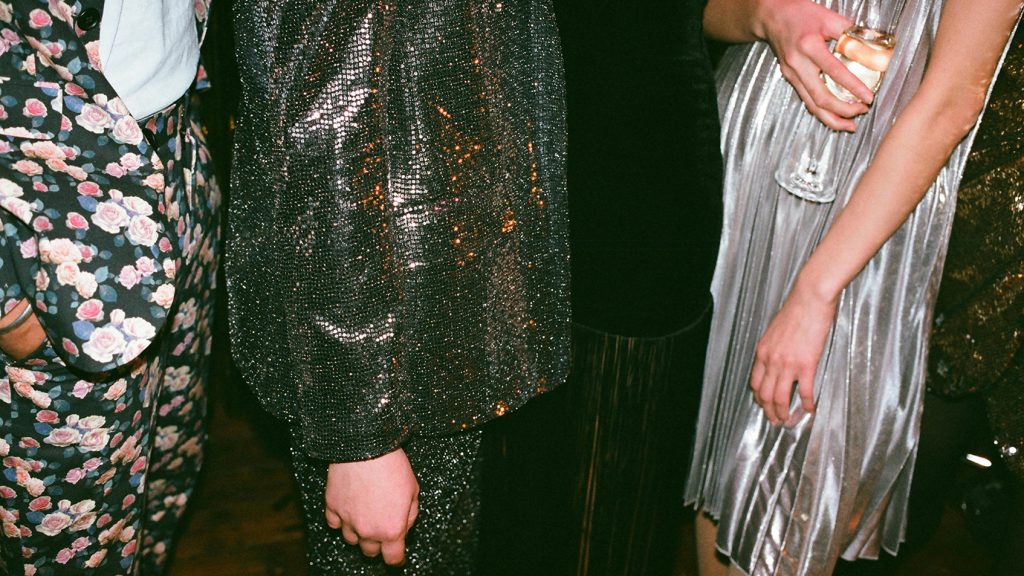
The new me was more comfortable in her skin with wearing outfits I was not allowed to wear for being too flashy and trying my hand at alcohol which was absolutely forbidden by my folks
The previously timid Delhi girl was now estranged from who she was a year back and “cannot imagine going back” after changing so much in this new land. “I love and respect my parents but had never realised how restricted I was back home,” Sonakshi said. “I am proud of how much I have grown in the past year in England.”
Just 40 miles from Bristol, 20-year-old Neil Goswami felt at home in Cardiff as he walked the Pride Cymru 2024 with his new tribe. It was peace he had never experienced in his hometown in Gujarat, India and he was thankful for where he was now.
“There were colours, music and cheers everywhere with everyone expressing themselves in their own way. As I crossed a pride flag painted on the Cardiff streets, I knew this was where I belonged,” said Neil. He had worn the most colourful shirt he could find in his wardrobe which did not even come close to how well-prepared everyone else was.
It had only been a year since Neil had come out as queer to best friends back home, never having the courage to do the same with his parents. The past few years had been an intense struggle for him where he had to choose between keeping his parents happy and identifying who he was.
“It had been a while since I knew who I was and knew that the world I came from would never fully accept me as a queer person yet. It is a long way to go,” he said. Neil was an only child to ‘very conservative’ Indian parents and his small town in Gujarat was not a place where someone could be ‘openly gay.’
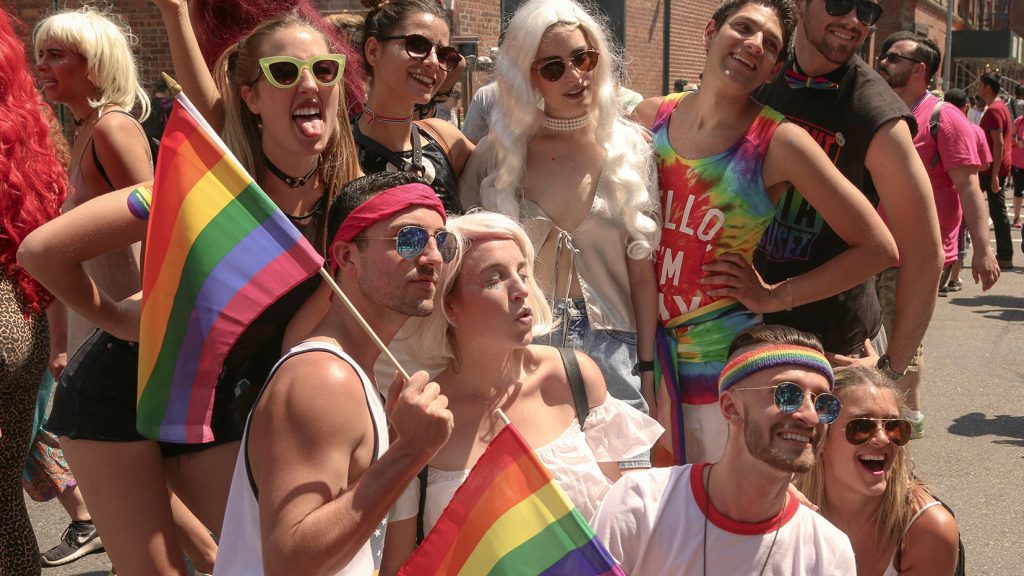
As I crossed a pride flag painted on the Cardiff streets, I knew this was where I belonged
While in high school, Neil explored a couple of mainstream heterosexual romantic relationships, but he realised a part of him was missing and he was attracted to more than one gender.
“I came out to my closest friends at 17 and knew that no one else around me would be open-minded enough to understand me,” Neil said. “I did not want to stage a dramatic disclosure to my parents or cousins without being ready.”
According to him, though people in India are now exposed to LGBTQ and are accepting of people’s choices, many are fake allies, and one would hardly expect small-town parents to take it well. The anxiety around such a situation harmed the 20-year-old’s mental health and self-image.
“Starting off in the UK, my world had lighted up like never before as I was introduced to LGBTQ+ clubs and societies, along with support groups for the queer at the students’ union from the very first day,” said Neil talking about how he felt safe and supported from the day he had begun university.
He met more queer people every day and even found people who connected with him without the fear of judgement or feeling anxious. “I often struggled with trying to label myself appropriately but everyone else said it’s not something I have to do,” he said talking about the support he received.
Devanshi Dutta, a researcher of Gender studies at Calcutta University, attended her first Pride parade in Toronto and her subsequent ones in the city of Kolkata. She talks about the contrasting views that still exist among the Indian youth.
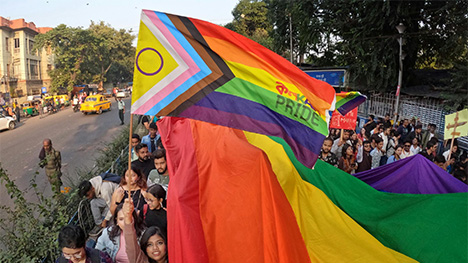
“Kolkata hosted the first Pride parade in India and still hosts one of the best Pride parades in India every year, which people from all over the country attend. However, the city does not accept it as well as one would hope for owing to deep-rooted homophobia and transphobia,” she said.
According to Dutta, despite the progress the people are making, it is still hard for the older generation in the country to understand such sentiments. “I do not entirely blame the parents of these individuals as our culture never gave us a chance to change their perspectives,” she said. “I am glad many find the acceptance they seek after venturing elsewhere to follow their dreams.”
Neil’s friends made sure he got a taste of everything from taking him to queer bars in London’s Soho to the Gay Village in Manchester, along with visiting festivals and events for the LGBTQ community in the UK. He knew he had left his dark, hopeless world behind and embraced his true identity in a place where he would get the love he needed.
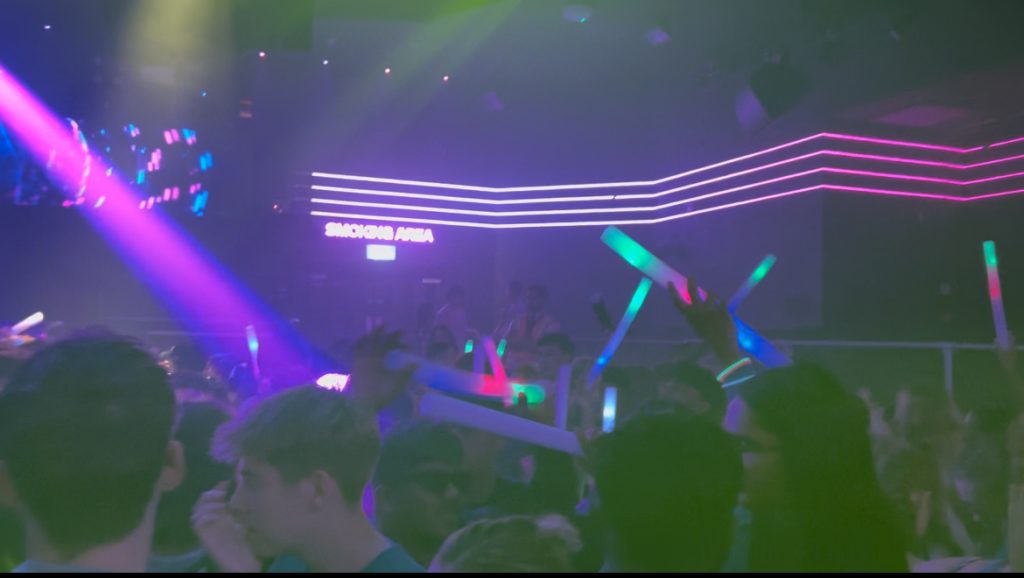
“I met interesting people wherever I went and listened to their stories, even relating to some of their experiences. As a year passed, I knew I was ready to start dating without trying to fit in somewhere I didn’t,” he said.
As he joined dating apps, he started talking to people he was attracted to and eventually dated. Neil’s friends Jess and Arthur often set him up with people they thought would be ‘his type’ and helped him open up to more people. It was with their help that he found someone he deeply connected with.
He attended his first Pride Parade in Cardiff with his trusted university mates in the summer of 2024.
“When I first arrived in the UK, I was simply looking for an escape while pursuing my degree. However, I ended up finding the warmth and acceptance that I never knew I longed for. Pride Cymru will always remain special to me,” said Neil.
Similarly, when Sonakshi first arrived in the UK, she did not have relentless ‘situationships’ and ‘talking stages’ in mind instead, she romanticised the idea of a charming Englishman coming her way while living her mundane life. She often dreamt of British men thanks to the images of Jane Austen’s Mr. Darcy, or Taylor Swift’s ‘London Boy’.
“I grew up reading Austen and Brontë classics and the idea of a Brit man was a different genre of romance than Bollywood. I knew it only existed in the fictional Victorian world, but a girl can always dream,” explained the literature scholar. “Reading those typical classic British novels and watching movies like ‘Notting Hill’ and ‘Love Actually’ made me daydream about British men and their chivalrous ways,” she said.
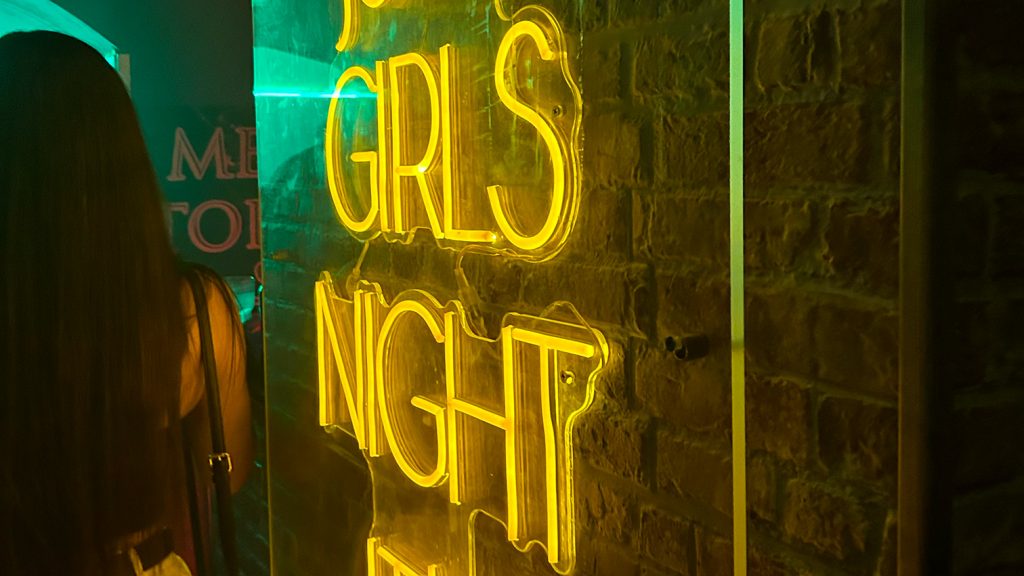
In hopes of finding someone ‘organically’, Sonakshi started frequenting the famous Bristol nightlife on weekends. It was at the encouragement of her new friends she visited vibrant nightclubs in the city where she encountered many of the opposite gender who, she hoped, could be potential love interests.
“It was nothing like what I had imagined it to be,” she spoke of the times she was asked to dance by men in the clubs. Most of them were only interested in going to his place nearby just about five to ten minutes after some “intimate moments” in the club.
Though her hopes of a real ‘Mr. Darcy’ was nearly shattered, it was the first time Sonakshi had stepped out of her comfort zone and finally gained the space to explore beyond her usual self. Unlike before, she was noticing herself opening up to people more easily and readily trying new things in the UK which she would’ve been terrified of in India.
“I met people native to England and from all around the world, getting the chance to explore romantically and physically. I am more confident and freer than I have ever been,” she said, reflecting on the past year.
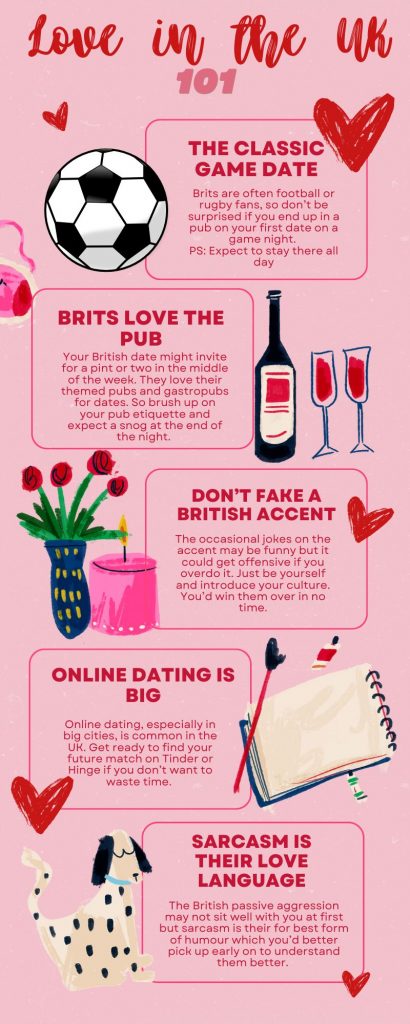
The struggle of living a double life as a South Asian girl away from the parental gaze is like that of Devi Vishwakumar (played by Maitreyi Ramakrishnan) in the Netflix drama ‘Never Have I Ever’. The character not only struggled to interact with her high school crush, but also had a hard time when she was caught by her Indian mother while she was someone.
Devi mother’s Nalini (played Poorna Jagannathan) knocks her daughter on the head calling her ‘donkey’ in the native Tamil and says, “Your father’s ashes have barely begun to drift off to the sea.”
The daughters are made to stay away from boys their entire formative years and then expected to find a man themselves to marry when they come of age.
In a recent interview, Jagannathan kept a typical autocratic Indian mother with random violent threats in mind playing her popular role. She wanted to channel the perfect overprotective mother who would even slap her daughter to keep her ‘in order’ in a chaotic ‘Western country’.
As ‘Never Have I Ever’ depicts, it often becomes a struggle for a South Asian to fit into a Western society while being under traditional familial values at home. Just like Sonakshi, the old, restricted self and the new free adult often come into conflict with each other.
Dr. Shreyasi Chatterjee, a professor of sociology at the University of Delhi shares insight into how Indian parents project the traditional culture onto their children and become overprotective till they come of age.
“Indian parents often have differing protective attitudes towards sons and daughters, with the latter becoming almost suffocated at home,” she said. “The daughters are made to stay away from boys their entire formative years and then expected to find a man themselves to marry when they come of age.”
Dr. Chatterjee talks about the hypocrisy of Indian parents and how only through exposure and freedom can the Indian daughter become independent. “Even if it is for a couple of years, it becomes almost necessary to leave their homes. I hope these young women find the freedom they have always sought.”
